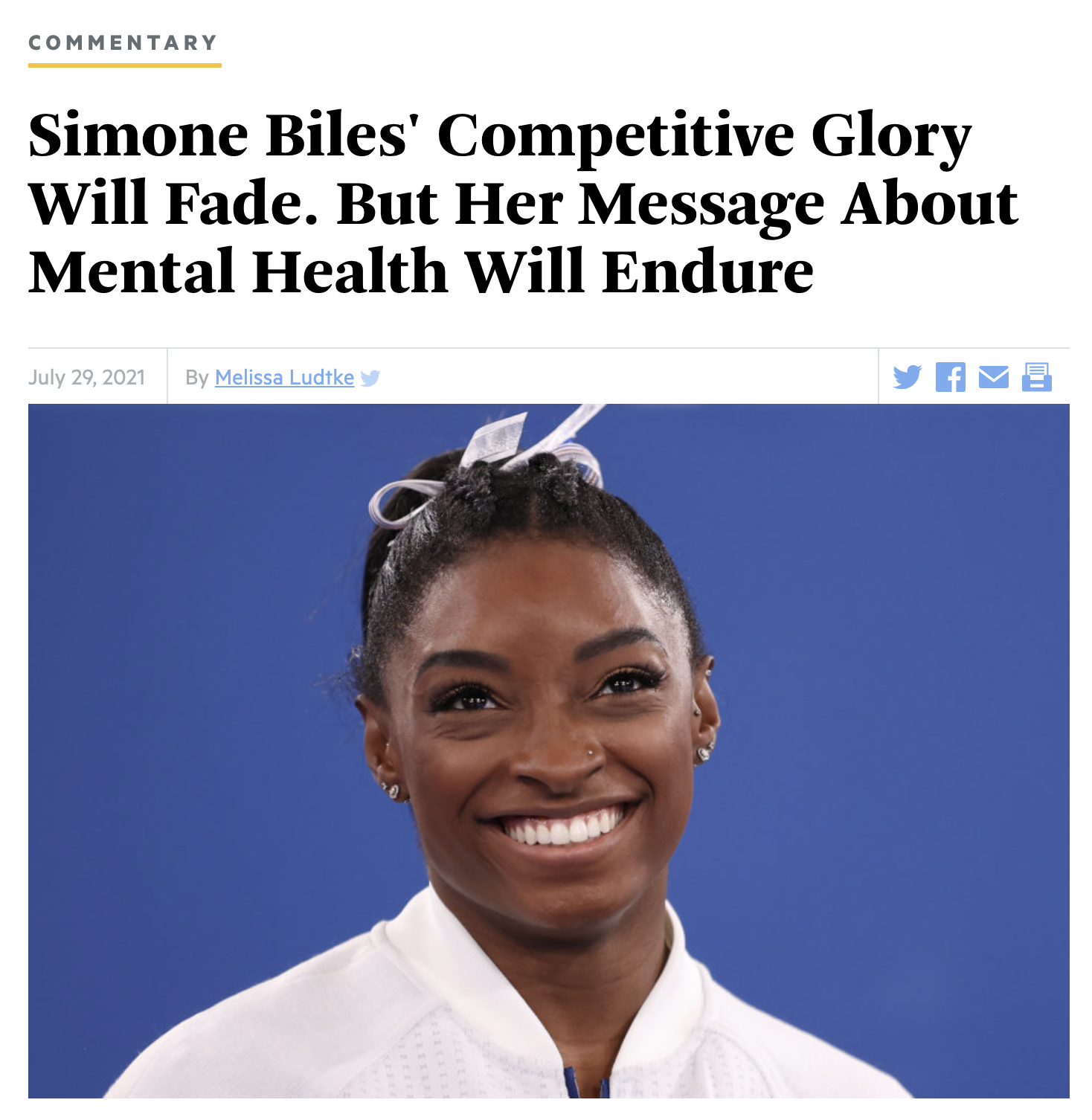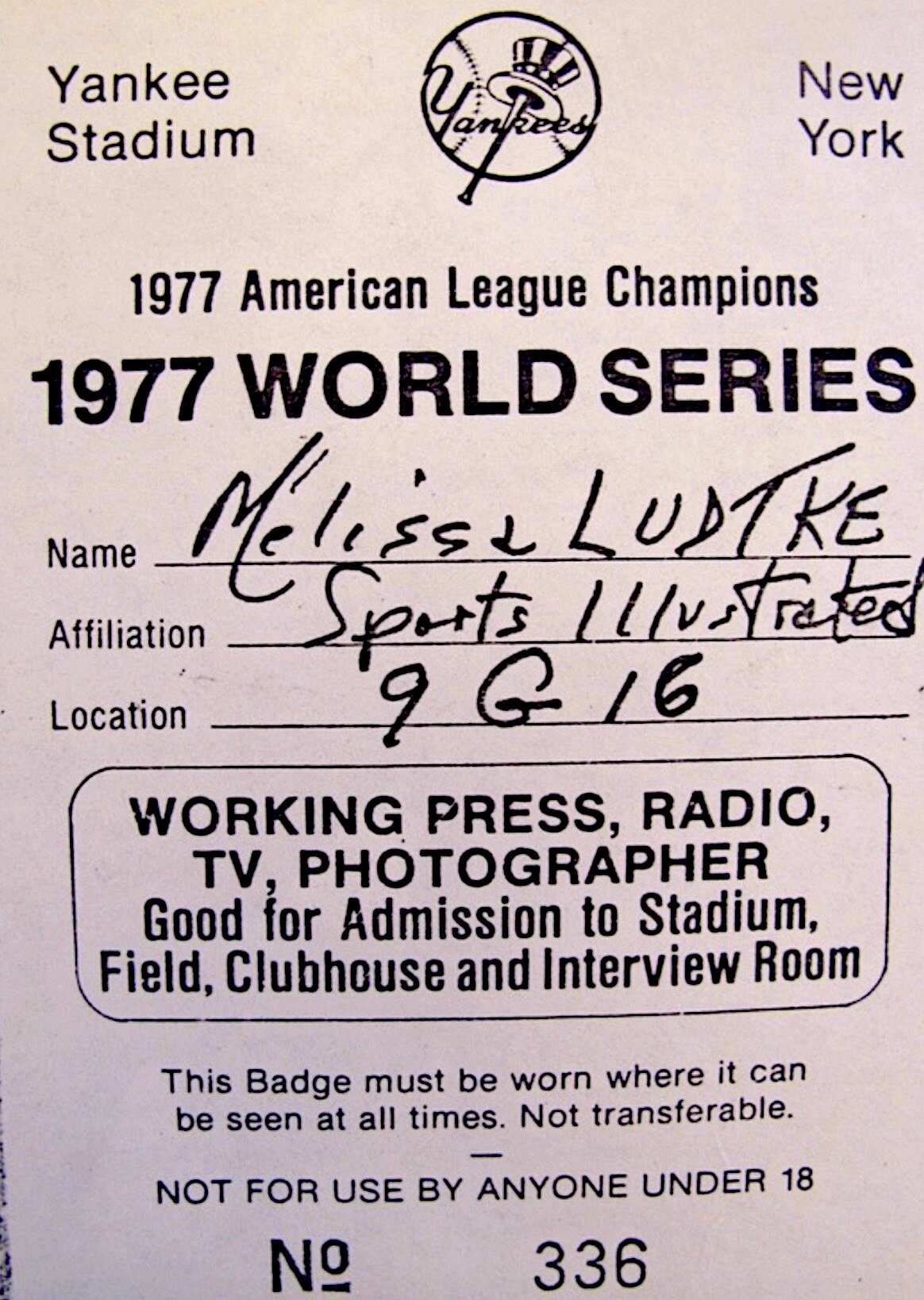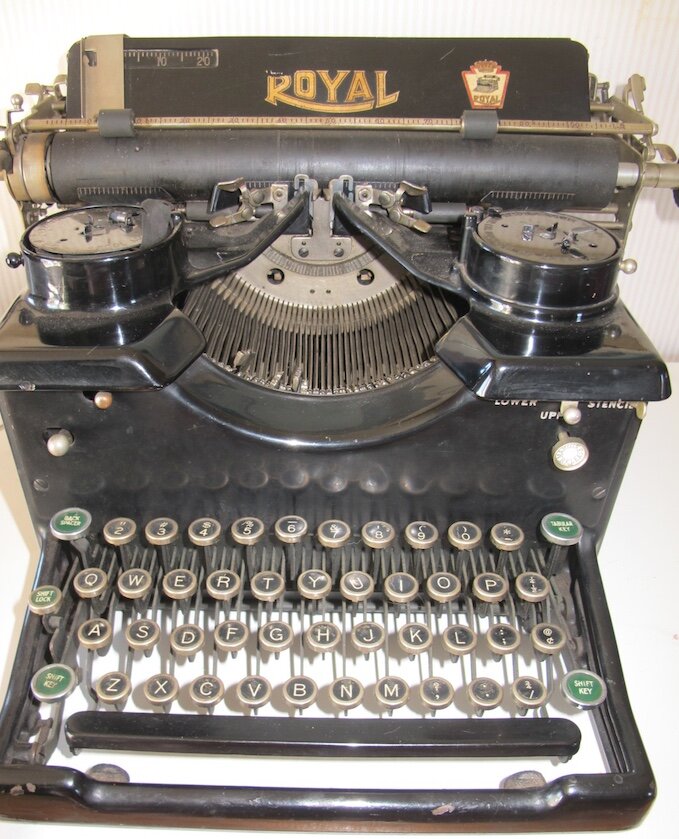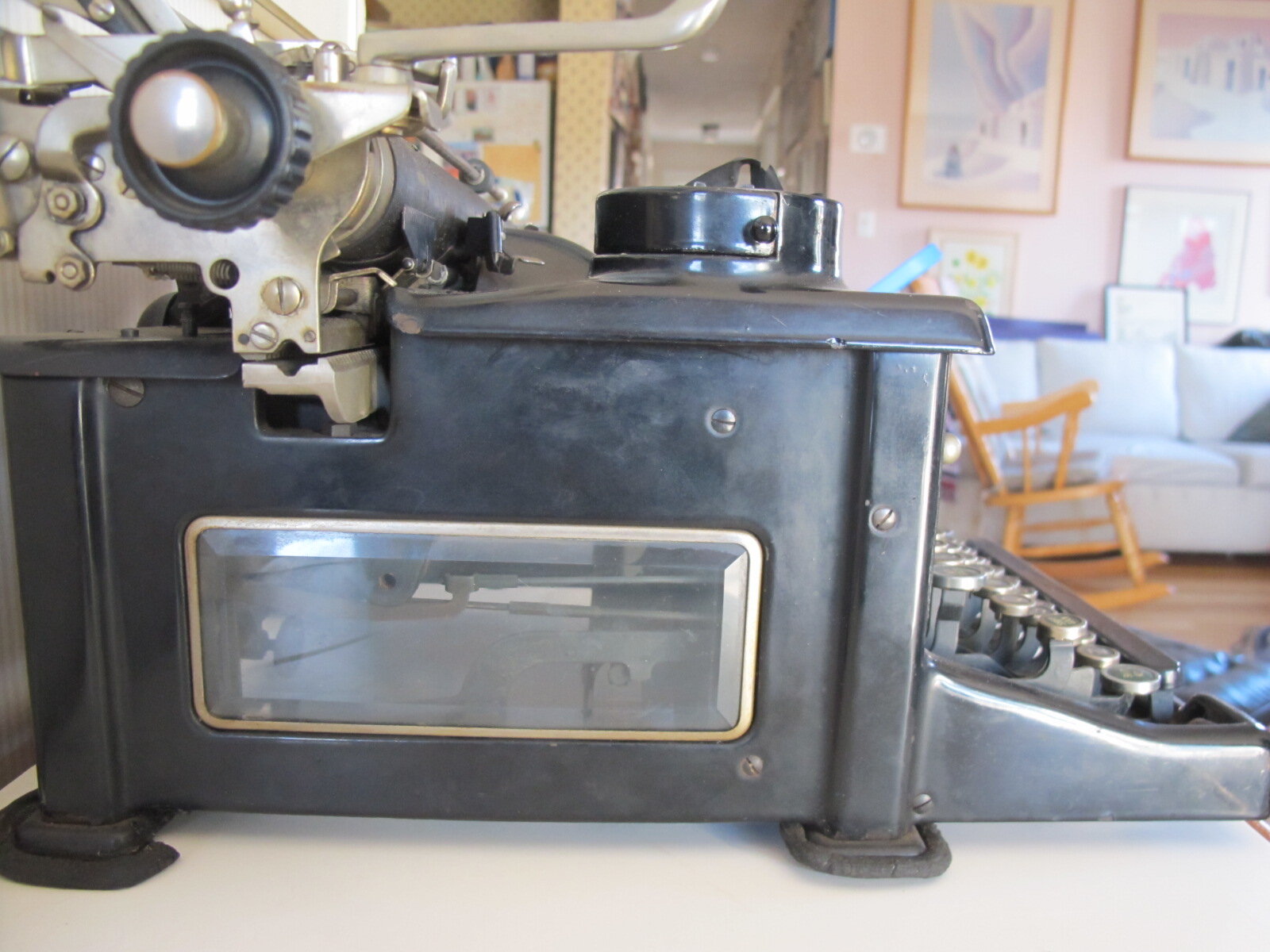Summer of 2021: Women, Sports Media, Tokyo Olympics and Mental Health
/I am pausing as August takes us to summer’s end to reflect on issues revolving around sports, ones that I think about every day. Daily, though in late August I am on a vacation hiatus until Labor Day, I post stories, along with my thoughts, in the Facebook community I curate, Locker Room Talk. And this summer, I was given a few splendid opportunities to share my insights.
In May, on the HBO sports magazine show, Real Sports with Bryant Gumbel
In July with a commentary I wrote for WBUR’s Cognoscenti
In August, during the Olympic Games, E.B. Bartels interviewed me about the 2021 Olympic Games through the lens of women, for Wellesley College, my alma mater.
In August, Lucas Rodrigues, a sports journalism student at Quinnipiac University, interviewed me, and then published a blog post, including my experiences in being a woman in sports journalism with those of several other women.
Out of Bounds
“Andrea Kremer sheds light on the challenges faced by female sports reporters in a male-dominated industry.”
Forty years after they won equal access to locker rooms [due to my lawsuit, Ludtke v. Kuhn], female sports reporters continue to face serious obstacles in doing their jobs, from sexual objectification to abuse. Journalists Rhiannon Walker and Jessica Kleinschmid and Melissa Ludtke sat down with correspondent Andrea Kremer to discuss. Link to the trailer, here, and entire interview can be streamed on HBO Max.
Here is an excerpt from my essay about Simone Biles, after she raised the issue of mental health. In writing it, I shared, too, the time in my life when I was challenged by clinical depression.
“Long after the cauldron’s flame is extinguished in Tokyo, Biles’ words will burn brightly. Her Olympic exits – paired with the honest clarity of her explanations – will be in the minds of those who grapple with what it is to feel mentally unhealthy. But given the stigma that still hangs over mental health, Biles’ message requires reinforcement from all of us, especially as her critics use social media to falsely accuse her of hiding behind mental illness as an excuse for her poor performance. It’s not.
Long after the cauldron’s flame is extinguished in Tokyo, Biles’ words will burn brightly.
By her actions and with her words, Biles will empower others to share such feelings outwardly, perhaps for the first time, in seeking help towards recovery. Several decades ago, when I was felled by clinical depression, I felt ashamed and embarrassed. I confided my illness only to extremely close friends and begged them to stay silent about it. After absorbing Osaka’s revelation at the French Open and Biles’ blunt talk at the Olympics, then hearing Phelps in his Olympics commentary say, “It is OK to not be OK … we all need to ask for help sometimes,” I knew I could write for the first time what I just did in publicly revealing my mental health struggle a few decades ago from which I recovered – and grew.”
This 4’ 11” Philippine weightlifter, Hidilyn Diaz, won her nation’s first Olympic gold medal. In my interview, I mentioned her in urging us to not “forget the inspirational stories! I think the most encouraging and exciting stories from this Olympics have been about women, too: Mongolia’s three-on-three basketball team, the cyclist from Afghanistan, the swimmer from Alaska, the young women skateboarders. My favorite is the one about ;the weightlifter from the Philippines winning her country’s first Olympic gold medal.
EB Bartels: How do you think sports reporting has changed—or hasn’t changed—since the 1984 Olympics?
Melissa Ludtke: This year is the first Olympics where they’ve had equal participation across gender in sports. And this year a lot of the stories from the Olympics have focused on issues challenging women, in part because women athletes are finding their voices and demonstrating their desire to control their lives as athletes. Just look at the documentary LFG about the women’s soccer team players taking their own federation to court for equal pay and treatment. There are new mothers speaking out about the unfair rules preventing them from bringing their breastfeeding babies to the Olympics or about how Nike treated athletes while and after they were pregnant. How can the media avoid covering women this Olympics season?
EB: And these athletes can speak for themselves more now too, right? Just look at Simone Biles using her Instagram account to speak about mental health and competition.
ML: Exactly. Women are saying, enough is enough, we’re speaking up, we’re going to make you listen—and they can do it through social media, through the t-shirts they wear. As for Simone Biles, she is the only gymnast who was sexually abused by the former U.S.A. gymnastics doctor Larry Nassar who is still competing at this high level. She felt it was important for her to be a leader this year—and there are so many who have spoken up for her, like former Olympic gymnasts Aly Raisman and Dominique Dawes. And there are many people speaking out against the sexualization of women athletes! There was the story about the German gymnastics team with full-body leotards and the Norwegian beach handball team that wore shorts instead of authorized bikini bottoms and the runner who was accused of wearing shorts deemed too short. The federations and associations that have set these rules were led and run largely by men, but now women athletes are changing these rules by choosing what works best for them to wear.
In his story, “Sports Media’s Gender Gap: Passion, Persistence & Patience Exemplified by Women In Sports,” Lucas Rodrigues, a sports journalism student at Quinnipiac University, used this image to show readers the access to the clubhouse that I’d been given before Commissioner Bowie Kuhn took it away from me at the 1977 World Series.
Lucas Rodrigues began his story about women in sports journalism by telling my story from the 1970s, as he and I connected my experiences to what still happens today.
“Women today, as I did working in baseball, can still be made to feel as if they are outsiders. They can feel as if they are foreigners arriving in a place that is perceived to be a man's world,” Melissa Ludtke said. Ludtke, a pioneer for equal opportunity regarding gender within sports media, is arguably the most important example of passion represented by a woman working in sports media. Ludtke was denied access into the New York Yankees clubhouse during the 1977 World Series due to her gender, despite having a press pass, and later won a lawsuit against the MLB which is one of the most pivotal and impactful moments for women working in sports media.
“Although that is Ludtke’s most known moment working in sports, her career in sports media was always in jeopardy due to her gender and it was thanks to her passion for sports that allowed Ludtke to pursue a career that she truly loved. “Women who are going into sports media are doing it because they have a passion and are resolute,” Ludtke said. …
“It was a mix of persistence, passion and ultimately, postcards,” Ludtke said.
But mainly, it was her passion.
Passion is such an intense and almost overwhelming driving force for anyone pursuing a career. But in sports, and for women who possess passion in this field, it takes more than it should based on the historical truth of the lack of gender diversity in the sports media field. As Ludtke showed, women have always had to prove themselves even more in sports due to historical ignorance and lack of understanding of those innately involved in sports coverage.
“Women were very much quizzed at the beginning of everything because men were incredibly disbelieving that a woman could know a lot about sports. And I still think that happens today,” Ludtke said.
So, if this is the case, why would anyone want to put up with the hardships of working in sports due to their gender? A seemingly non-issue is evidently paramount in this field given the historical happenings to those like Ludtke and many others. Whether it’s 40 years ago or present day, women have always had it tougher in this specific field. And still, the one ever-present quality embodied in every brave and hard-working woman in sports media, is their passion.
“Most people would ask ‘Why do you want to work in sports?’ To me, it was always ‘Why wouldn’t you want to work in sports?’ I never second guessed it,” Liz Flynn said. Flynn is a recent Quinnipiac graduate with a master’s degree in sports journalism. Her passion started at a young age watching her beloved New York Mets with her family, which planted the seed for a passion in sports that bloomed into a career. However, being a woman and growing up wanting to work in sports is not a commonality in a lot of areas, especially in an all-girls Catholic school in New York, Our Lady of Mercy Academy. To this day, Flynn can recall the comments, questions and overwhelming judgment from her peers and others back home as to why she wanted to work in sports.













